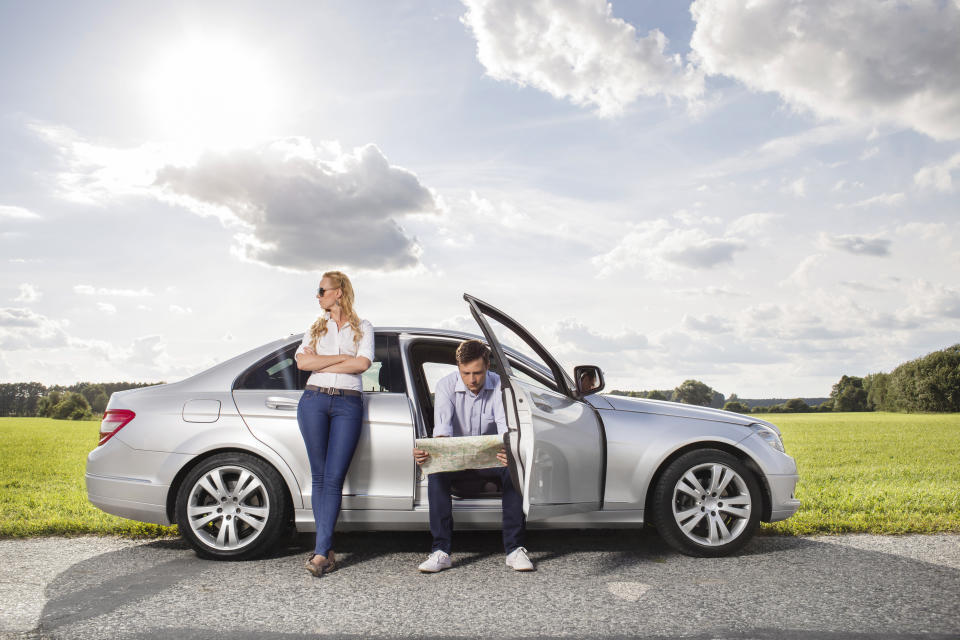5 tips to cut the cost of your car rental

The summer road trip is a staple of Australian culture. Grabbing a few mates and heading up the coast, be it in Australia or abroad, is a rite of passage. But, renting a car can be a bit of a pain and a costly one at that.
If you’re hitting the road this summer, here are some tips to help it go a little smoother.
Also read: Uber is coming to these 15 Aussie cities
1) Know the difference between car rental insurance and car rental excess insurance
If there is one thing you need to be wary of when renting a car, it is the difference between car rental insurance and car rental excess insurance.
Many people assume that their travel insurance covers their rental car, but if you take a closer look at your policy you’ll find that what you’re really covered for is car rental excess, not the car itself.
Car rental excess insurance covers the excess amount you’ll owe the car rental company if you’re involved in an accident. To make sure you’re covered in the event of an accident, you’ll generally need to take out cover through the rental company.
Also read: How ordering Uber Eats can damage your chances of getting a home loan
And it should go without saying that even if you’re renting a car in Australia, your regular car insurance doesn’t cover you.
2) Shop around for the best deal
We are living in the world of tomorrow (well, yesterday’s tomorrow) and one of the benefits of this is technology. Gone are the days when you’d have to call around to find quotes from a bunch of different rental companies or call one company and take the first price offered. No, now we are all about comparison and if you’re not using comparison services when looking for a rental car then you’re leaving money on the table.
Just enter your trip details such as your desired pick-up location and the time and date you’ll need the car, then compare your options to make sure you’re getting the best bang for your buck.
Side note: When booking anything travelwise online, it’s best to do so in a private browser.
Also read: Apple announces all-new MacBook Air 10 years after original debut
3) If possible, return the car to where you picked it up
Now, I don’t know if this one actually holds true for all car rental companies, but I know from the experience of renting a car in San Francisco to drive down Highway 1, that taking the car back to its original location was far cheaper than returning it to a lot in Los Angeles.
If you can’t return the car to its original lot and there is a noticeable cost difference, go back to the previous tip and use those comparisons again. See if any of the rental companies you originally ruled out on price allow you to return the car to any location without the additional charge. If it doesn’t charge any extra, run the numbers and see which company is the better deal.
4) Bigger is not always better
While not a hard and fast rule, generally the bigger the car, the more expensive it is going to be to rent. This, of course, doesn’t take into account sports cars or luxury vehicles.
So, if you’re travelling light and in a smaller group, opt for the economy option. Not only will it be cheaper to rent, but you’ll also probably end up spending less on petrol.
5) Watch out for the add-ons
When hiring a car there are quite a few items and choices that can add unnecessary costs, including:
Pick-up location. This isn’t a universal truth, but picking up a car at an airport versus another location tends to be more expensive.
Some rental companies offer GPS with their vehicles and in most cases, it comes as an additional cost. Now, if you’re travelling overseas, this can be useful as you won’t have to worry about international data charges to use the maps on your phone but if you’re travelling in Australia, you can probably skip this cost.In fact, even if you are travelling overseas, you can avoid this cost by taking advantage of services like Google’s offline maps, so you won’t have to use any of your data
Mileage allowances. When renting a car you’ll generally be offered two options: restricted or unlimited mileage. Restricted mileage hires generally work out cheaper but if you break the agreed upon mileage threshold you’ll end up getting slugged with a charge for every kilometre you travel over that limit. So, if you’re not sure how far you’re going to be travelling, unlimited mileage could be the safer bet.
Richard Laycock is an Insurance Expert at finder.com.au, the site that compares virtually everything.
Get Yahoo Finance’s top news and tips straight to your inbox. Sign up here

 Yahoo Finance
Yahoo Finance 